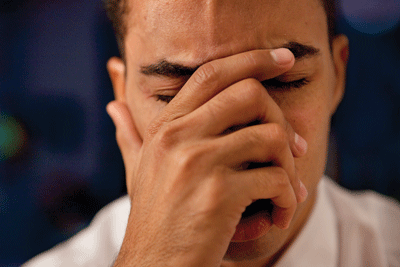Jourdan Taylor
Looking back, at twenty-two years old, throughout my life there have been several extended periods of time where I felt much lower than my usual low. This depression might last anywhere from a few weeks to a few months of my teenage life. Realizing that you may be living with depression at a pubescent age is terrifying. I lived in a way that neglected my fundamental needs for affection and attention, for fear of what I might discover had I searched inwardly, and for fear of asking for help. At such a young age, when something feels “off” within, it’s very difficult to pinpoint why you might feel that way. Teenagers are too unfamiliar with ourselves and our mental health to properly seek aid from those that can actually make us feel better. We struggle with expressing ourselves in a healthy way.
Youth in this country are sent off to live on their own at eighteen. Often times, we move to an entirely new city, take up residence on our own or with other teenagers, and we’re not properly trained on how to take care of ourselves. When a child is in foreign territory, left to their own devices, it’s actually very simple and easy to do damage to our emotional health by coping with stress improperly. This is the time when many young adults take to alcohol, drugs, and other poor methods of dealing with anxiety and depression. For this reason, it is my own personal belief that we should teach mental health as part of our primary and secondary education process, so that less people make it to college unprepared.
When I turned twenty, I felt it was time to take matters into my own hands. I was determined to find some type of treatment that could change the way I felt emotionally into more consistent positivity. Just feeling like I was being proactive about seeking treatment helped dispel the helplessness and frustration that accompanies anxiety and depression. I decided to enroll into a therapy course with other teenagers and adults. I made it known to the people charged with my care (my parents, siblings and external family members, my employer) that I would need some time and space to make sure that I was healthy enough to give them all the version of myself I felt they deserved.
But, I was still nervous. I was uncomfortable with the thought that there might be something “wrong” with me. I was afraid to confront the parts of myself I didn’t like. I was fearful that the medical professional assigned to my care wouldn’t be a person I felt like I could trust and show vulnerability to. I was worried that, by finding a therapist who could diagnose me, my worst fears about the person I might be would come to light. That I really was alone, and unique from anyone else. That I’d never feel “better”.
I had been living under the impression that no one else felt the way I did. I felt that my depression was my own, not to share with anyone for fear of “bringing them down”. It had never occurred to me that people might actually want to help take care of me. The outpouring of support from my closest friends and family was so refreshing and made me feel so good about myself, that I never turned back from my mission to treat myself better. I continually confide in those who are here for me— my therapist, my lovely girlfriend, my parents my siblings, and my friends. I make it clear that I rely on their support, and I support them too. I remember to say nicer things to and about myself, because I can clearly remember the people I care about saying those things to me too— and meaning them.
Not enough people talk about their journey to discover better mental health. It’s a very stigmatized topic amongst youth, amongst African-Americans, and many marginalized groups that already struggle with “fitting in”. There are so many of us who live each day with some form of mental health issue, and would love to feel accepted, seen, and supported by the general public. By talking about what goes on in our minds, we can help dispel the notions that people living with depression feel. There’s no shame in seeking help with mental illness, a ton of people live with depression, anxiety, and worse every single day. It is important to have a dialogue about these issues so that our young people don’t grow up feeling alone and misunderstood.
I currently live with severe mood disorder, general anxiety disorder, and major depressive disorder— and I’ve never been happier.
If you feel like you need someone to talk to, please don’t hesitate to reach out to your loved ones and/or a medical professional.

